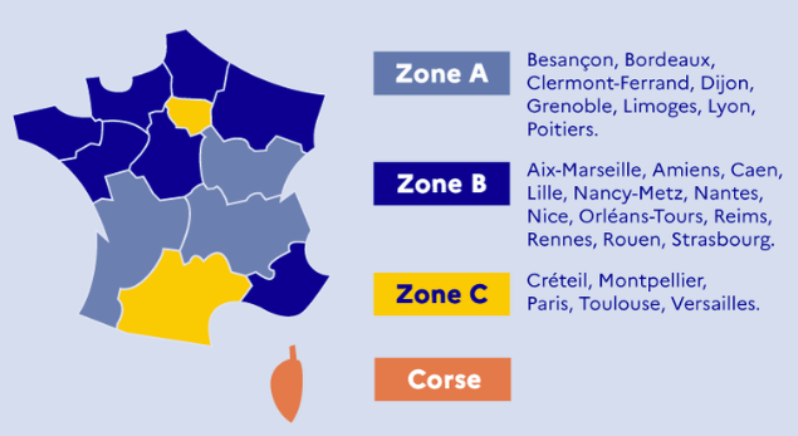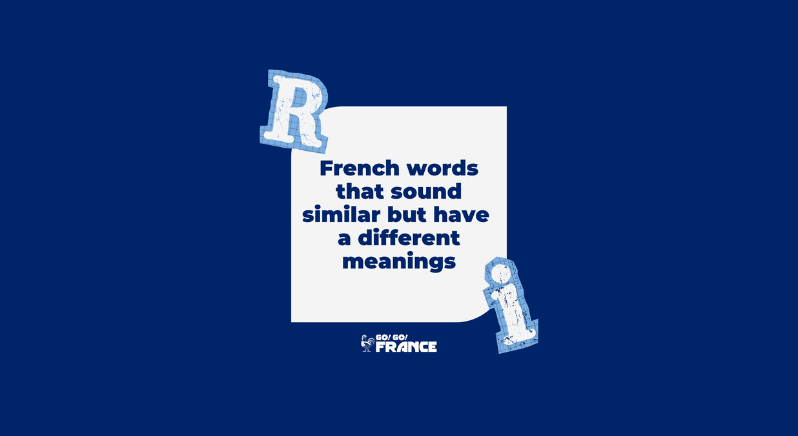Learning numbers in French is one of the foundational steps for anyone aiming to speak the language fluently. Whether you’re studying in France, travelling, or just interested in the language, understanding how to count and use numbers in everyday situations is essential.
In this guide, we’ll explore everything you need to know about French numbers, from the basics to more advanced usage, ensuring you can navigate any numerical situation with confidence.

Counting from 1 to 10
When starting with French numbers, the first step is to learn to count from 1 to 10. These are the building blocks for forming all other numbers.
- Un
- Deux
- Trois
- Quatre
- Cinq
- Six
- Sept
- Huit
- Neuf
- Dix
Memorizing these numbers is crucial as they frequently appear in daily conversations, whether you’re shopping, asking for directions, or discussing your schedule.





Counting from 21 to 100
Understanding the pattern in French numbers can simplify the learning process. From 21 onwards, French numbers combine smaller numbers to form larger ones. For example, 21 is “vingt-et-un” (twenty and one), 22 is “vingt-deux” (twenty-two), and so on.
The tens from 10 to 100
To make things easier, let’s break down some key numbers:
- 30: Trente
- 40: Quarante
- 50: Cinquante
- 60: Soixante
- 70: Soixante-dix (sixty-ten)
- 80: Quatre-vingts (four-twenties)
- 90: Quatre-vingt-dix (four-twenties-ten)
Here is a mnemonic to help you remember the last three:
- 70 = 60 + 10: Soixante-dix literally translates to “sixty-ten.” It combines “soixante” (sixty) and “dix” (ten).
- 80 = 4 x 20: Quatre-vingts translates to “four twenties.” This structure uses “quatre” (four) and “vingts” (twenties) to form 80.
- 90 = 4 x 20 + 10: Quatre-vingt-dix translates to “four-twenties-ten.” It combines “quatre” (four), “vingt” (twenty), and “dix” (ten).
However, it’s important to note that in other francophone countries, these numbers differ. For example:
- 70: Septante (Belgium, Switzerland)
- 80: Huitante or Octante (Switzerland)
- 90: Nonante (Belgium, Switzerland)
These variations are approved by the Académie Française but are much less commonly used in France.
Editor’s Note: The way we pronounce 70, 80, and 90 in France is often one of the reasons why foreigners get confused by the French language. Even as a French native speaker myself, I can’t argue that the way our friends from Belgium, Switzerland, or Canada pronounce those numbers is probably easier.

Compound Numbers
When combining numbers, the structure becomes evident. For instance:
- 31: Trente-et-un
- 45: Quarante-cinq
- 78: Soixante-dix-huit
- 99: Quatre-vingt-dix-neuf
Larger Numbers
When dealing with numbers beyond 100, French follows a logical pattern:
- 100: Cent
- 200: Deux-cents
- 300: Trois-cents
- 1000: Mille
- 2000: Deux-mille
Thousands and millions are straightforward, with “mille” for thousand and “million” for million.

How to Write Numbers in French
Writing numbers in French involves several key rules to ensure clarity and correctness. Numbers from 1 to 16 are usually written out in words (e.g., “un,” “deux,” “trois”). Compound numbers employ hyphens (e.g., “vingt-et-un” for 21, “trente-deux” for 32). French uses a period to separate thousands (e.g., “1.000” for 1,000) and a comma for decimals (e.g., “1,5” for 1.5). There are many other rules when it comes to writing numbers in French, but you can learn more and practice at https://www.francaisfacile.com/
If you’re interested in learning the French language and what life is like in France, follow our blog for updates on events, activities, culture, and more!











